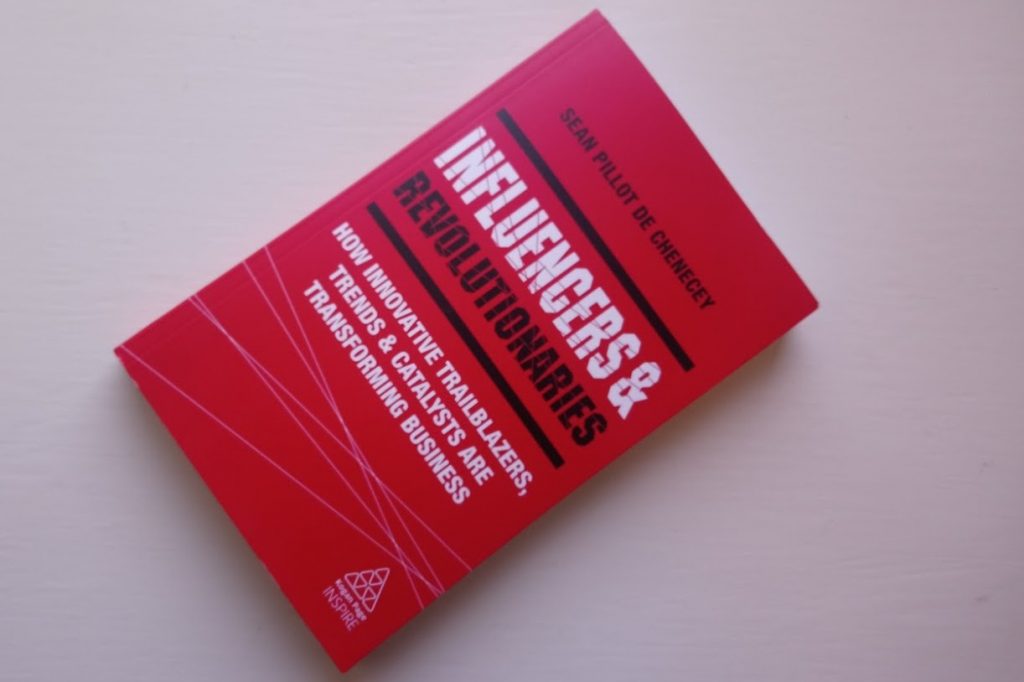Review: Influencers & Revolutionaries

About the author
Richard Bailey Hon FCIPR is editor of PR Academy's PR Place Insights. He teaches and assesses undergraduate, postgraduate and professional students.

Influencers & Revolutionaries: How Innovative Trailblazers, Trends & Catalysts Are Transforming Business
Sean Pillot de Chenecey
Kogan Page, 2020, 270 pages
This book is purportedly about innovation, framed by the climate crisis. Innovation, note, as distinct from invention – since as economist Joseph Schumpeter argued, innovation is the market introduction of an idea, not just its invention.
Mostly, it’s about the future. The author, a noted researcher and commentator in the field of marketing, explores the challenge of sustainable consumption when faced with climate change. It was written before the coronavirus lockdown but is a good read now we may have the time and will have the need to envisage a better future.
Capitalism requires more consumption; climate action demands less. We’ve seen in recent weeks how the sudden closure of so much production and restrictions on consumption has improved air quality, but at what expense to the economy? So how can we make our cities, homes, fashion, travel and work sustainable?
The book asks big questions and is broad in its scope. Since few businesses or individuals will be equally interested in all the chapters (ranging across advertising, media, fintech, food, fashion, smart cities and entertainment), let’s pick just two to illustrate the author’s approach.
The chapter on travel and tourism poses an important paradox. Since social media encourages imitation (because our social instinct is to copy and share), this leads to familiar bucket lists of ‘top places to visit’ or ‘best angles for Instagram photos’. So how to solve this problem: ‘Popular tourist destinations are inundated with outsiders who are essentially destroying what they’ve come to see’. The impacts are discussed before the author comments: ‘Few of us tend to remotely consider that we, as individuals, might be part of the problem.’
The answer will involve low- or zero-carbon transport, and the careful curation of alternative destinations; ‘eco-luxury’ may play a part but is no replacement for the volume cruise ship industry. Will we see a return to airships, he wonders. Certainly, we appear to have reached ‘peak car’. The problem is well known: vehicle emissions, the resistance of younger generations to car ownership and the problem of the space required in cities for car parks. The answer: rapid innovation around alternative technologies and self-driving vehicles and new models of ownership.
The chapter on the future of work stands up well despite being written before the present lockdown forced so many to switch how and where they work. Indeed, his warning that ‘future-proofing ourselves against the ongoing jobs disruption is something that we all need to do, by embracing change and adapting ourselves accordingly’ now feels prophetic.
The World Economic Forum predicted in 2018 that 65% of children entering primary school will end up in jobs that don’t yet exist. This has implications for education at all levels, and also for ongoing training opportunities provided through the workplace.
Pillot de Chenecey sees that we need work ‘to feel connected, to have a purpose and to have a sense of community.’ Once again, employers as well as workers have been tested by the current lockdown. How well did they do? How are you doing?
I reviewed Pillot de Chenecey’s previous book, The Post-Truth Business, which was published only last year. That was an interesting read, but it felt rushed. This is a much more considered text and I suspect it has been a longer-term project for the author.
I started this review by highlighting the book’s focus on innovation. To end, the author proposes an ‘Innovation Manifesto’. The context for this is that ‘around the world, people are looking for alternatives and demanding a better way of doing things; with desires including more sustainable, inclusive, ethical, flexible, personal, collaborative or radical options – with those ‘radical options’ possibly being of the nostalgic or futuristic variety.’
The manifesto proposes an approach to innovative thinking: to question and confront; to look and listen; to research and develop; to collaborate and utilize; and to be a good corporate citizen. On this last point, ‘ethics is … a central point when it comes to issues such as AI, privacy, IoT, cybernetics and robotics.’
His poster child among ‘influencers and revolutionaries’? Not so much Elon Musk, for all his innovations, but rather Greta Thunberg who ‘takes a more profound approach [than over product innovation and production], and wants to make things better for humanity.’